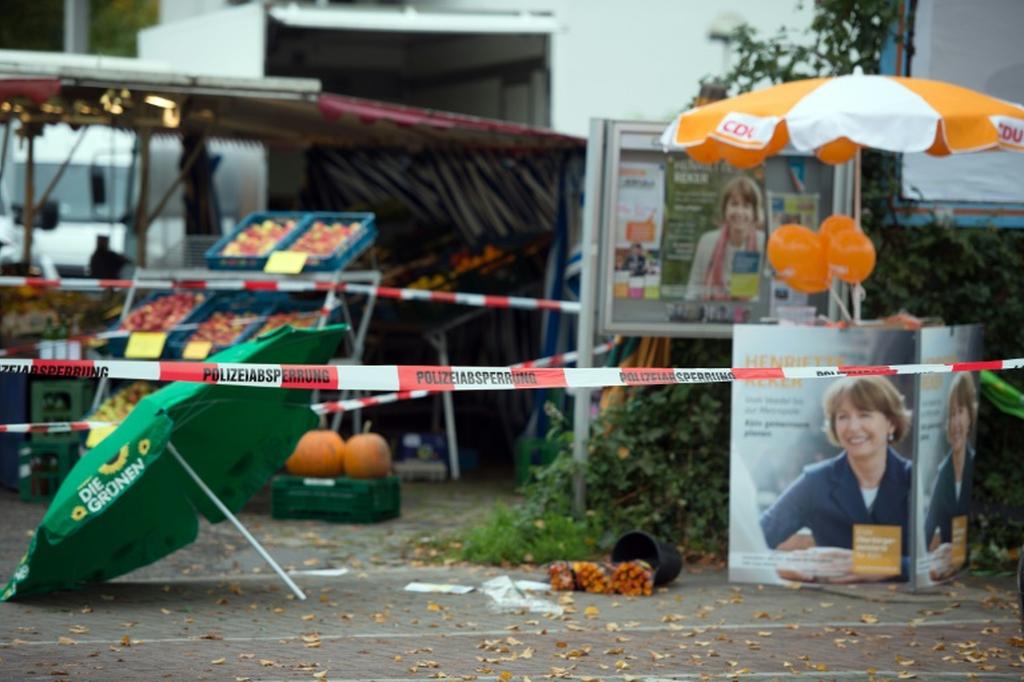REFUGEES - GERMANY
The attack against Henriette Reker (Cologne) is but the last of a series of acts of violence and intimidation. The Church stands on the side of reception. The voice of Catholics

Attorney Henriette Reker, candidate mayor for the Christian-Democrat/CDU, Liberal Democrats-FDP and Greens, was elected October 18th with 51% of the votes. The news was followed by European media and its public relevance has gained attention that extended far beyond the German borders owing to the attack against Reker ahead of the national elections, Saturday October 17, during one of the last meetings with voters. Ms Reker was stabbed and severely wounded by a 44 year-old supporter of the xenophobic, Neonazi Pegida movement, an ex militant of the German free workers party, FAP; dissolved by the Federal Government in 1995. The motivation of the attack has been linked to the new activity of the mayor, still hospitalized after long surgery that saved her life: Henriette Reker has been responsible for the reception and accommodation of the refugees in Cologne, and with time she always vouched her support for the integration of migrants. The role of Pegida. The serious act of violence in Cologne falls within mounting xenophobic revanchism and nationalistic drifts marking the ongoing inflow of refugees to Germany coupled by controversies over Chancellor Merkel’s government’s excessive openness to migrants and the objective difficulties of handling their reception. The picture is made worse by the celebration, October 19, in Dresda, of the anniversary of the first demonstration of Pegida (Patriotische Europäer gegen die Islamisierung des Abendlandes, European Patriots against the Islamization of the West): serious clashes took part in the martyr city of Second World War amidst twenty thousand xenophobic militants and over thirteen thousand members of associations in favour of reception policies and against racism. Violence and politics. The images of volunteers in action, the welcoming applauses to refugees arriving into German train stations, the police distributing teddy bears to the Syrian migrant children on the border areas, over the past days left room to news of repeated death threats, intimidation, attacks that involved several local administrators across town and cities of Germany, with fire-bombs and looting in several hostels organized by Caritas in particular. Politicians’ comments and the press have equally highlighted anti-Islamic, anti-Semitic and xenophobic drifts, stemming from Pegida’s violent slogans. Cardinal Reiner Woelki, archbishop of Cologne, immediately condemned the attack on Ms. Reker: "This unbelievable attack” against Reker "upsets me deeply. I wish you a speedy recovery" and "I entrust you to prayer: the intention to obscure the election campaign with this senseless act of violence is shocking." “Also the interior minister of North Rhine Westphalia, Ralf Jäger, confirmed that the attack appears to fall “within a politically motivated act." Escalating intimidation. These analyses also reflect the simulacra of Chancellor Angela Merkel and Vice-Chancellor on the gallows, with related threats online against the prosecutor who started investigations. As many as 500 reports for aggression, damages and attacks against persons and property were filed to the police by political leaders, volunteers, doctors and religious. The independent mayor of Tröglitz, Markus Nierth, in Saxony-Anhalt, resigned in March after a violent demonstration against the construction of new homes for refugees, held in front of his house. The mayor of Magdeburg has received numerous death threats for his action in favour of reception. The president of the district of Kassel, Walter Lübcke, was threatened in various ways for refusing to disclose information on safety housing for refugees. These are some of the most serious situations prior to the attempted murder of Reker.Asylum-rights are not under discussion. Andreas Kaiser, on "Tag des Herrn", Catholic weekly of the archdiocese of Berlin and of the dioceses of Dresda-Meißen, Erfurt, Görlitz and Magdeburg, underlined that "the right of asylum cannot and should not be questioned. On this topic the German Church is very clear." However, according to Kaiser, the problem of different approaches between economic migrants and refugees, refugees from war zones has come to the fore. The archbishop of Berlin, Msgr. Heiner Koch, emeritus of Dresden, from the Synod of Rome reaffirmed, in the light of the events in Dresden and Cologne, that "the aggressive tone and hatred expressed by the protesters of Pegida in their banners and slogans should prompt serious reflection." Koch broached the theme of how to cope with such large masses of migrants: "I understand that it is necessary to debate the controversial theme on how to handle such large numbers of refugees. None of us can think that integration would be easy. But fears and concerns make the situation extremely serious."